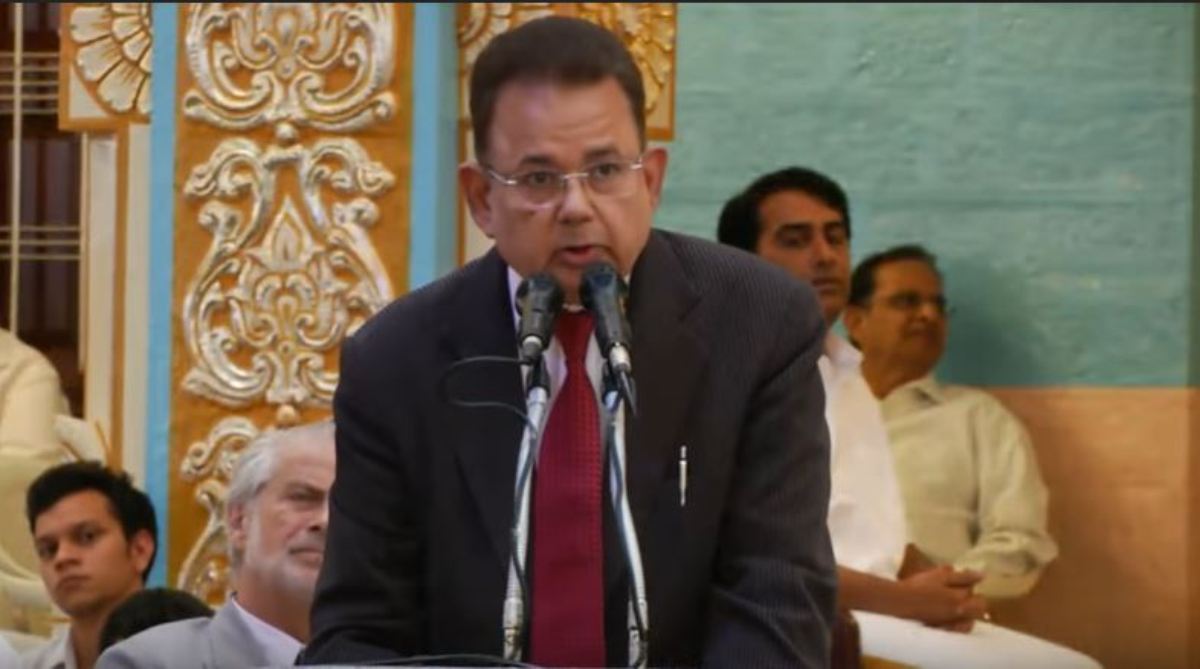Judge at the International Court of Justice, The Hague, Justice Dalveer Bhandari emphasised on equality for all as an important facet of human value, described the role played by Public Interest Litigation (PIL) in ensuring equality in society, and pointed out that society has a right to expect a judge to be a man of impeccable integrity.
“The principle of equality is one of the core human values. In order to ensure enjoyment of fundamental rights, it is essential that there has to be equality to a large extent in society. In order to ensure equality in society the SC in India developed the concept of PIL,” said Justice Bhandari on Saturday at the two-day conference on ‘Human Values and The Legal World’ in Puttaparthi.
Advertisement
The conference, which is said to be the first-of-its-kind in India, was attended by Chief Justice Dipak Misra, over 30 sitting judges of the Supreme Court and various high courts, and more than 750 delegates from legal fraternity.
“The legal world, lawyers and judges play an important role in developing, preserving and protecting human values,” said Justice Bhandari.
Explaining how PILs serve the society, Justice Bhandari said that they are “a challenge and an opportunity to the government and officials to make basic human rights meaningful to the deprived and vulnerable sections of the society”.
Justice Bhandari, a recipient of Padma Bhushan in 2014, said that PILs should be welcomed by the government and its officials because they provide an occasion to examine whether the poor and downtrodden are getting social and economic entitlement or whether they continue to remain victims of the powerful members of the society.
He added that PIL has to be exercised with care and caution.
“Justice Jeevan Reddy mentioned that it is true that on some occasion courts have overstepped their limits but by and large judicial activism has done a great service to society,” he said.
He illustrated how the judiciary played an active role in ensuring justice for the poor, marginalised, downtrodden and weak sections of the society.
A former judge of the Supreme Court, Justice Bhandari said that starvation deaths in newspapers and reports of wastage of food grains compelled the court to issue a notice to the central government and following hearing order the release of 10 million tonnes of food grains for the 150 poorest districts in India.
“Under supervision of former CJI, foodgrains were distributed. Perhaps starvation deaths were minimum in that year,” he said.
He also told the gathering how it was the court which made governments set up night shelters for the homeless, construct separate toilets for girls at schools, and install fire extinguishing equipment in all schools of the country.
Justice Dalveer Bhandari, who had served as Chief Justice of Bombay High Court till 2005, also underlined the relationship between law and morality identifying law as “a reflection of the morality of the society”.
“The society is entitled to demand that a judge must be a man of high integrity, honesty, moral vigour, ethical firmness, and impervious to corrupt and venal influences. Injustice anywhere is a threat to justice everywhere,” he said.
Paying tributes to Sathya Sai Baba, Justice Bhandari said that he found the spiritual teacher “an embodiment of wisdom, love and affection” from the personal interviews he had since his first visit in 1991.
Justice Bhandari cited the examples of Andrew Carnegie, the American businessman who donated money for the building which houses the International Court of Justice, and Nobel Peace laureate Dr Albert Schweitzer, who left his established medical practise in the US to work for the poor in Africa.
Before Justice Bhandari’s address, Chief Justice of India Dipak Misra elucidated on how dharma sustains society and maintains social order, besides ensuring well-being and progress of humanity.
“Dharma is a concept that cannot be adequately translated in English or any other language. It sustains society, maintains social order and ensures well-being, besides progress of humanity,” Justice Misra said after inaugurating the conference.
Read More: Dharma ensures progress of humanity, sustains society, says Chief Justice Dipak Misra
Among other dignitaries, present on the occasion were Supreme Court judge Justice NV Ramana, Andhra Pradesh High Court Chief Justice TBN Radhakrishnan, former apex court judge and NCLAT chairperson SJ Mukhopadhaya.
The conference to discuss the importance of human values in legal profession was also attended by members of legal fraternity and students.











